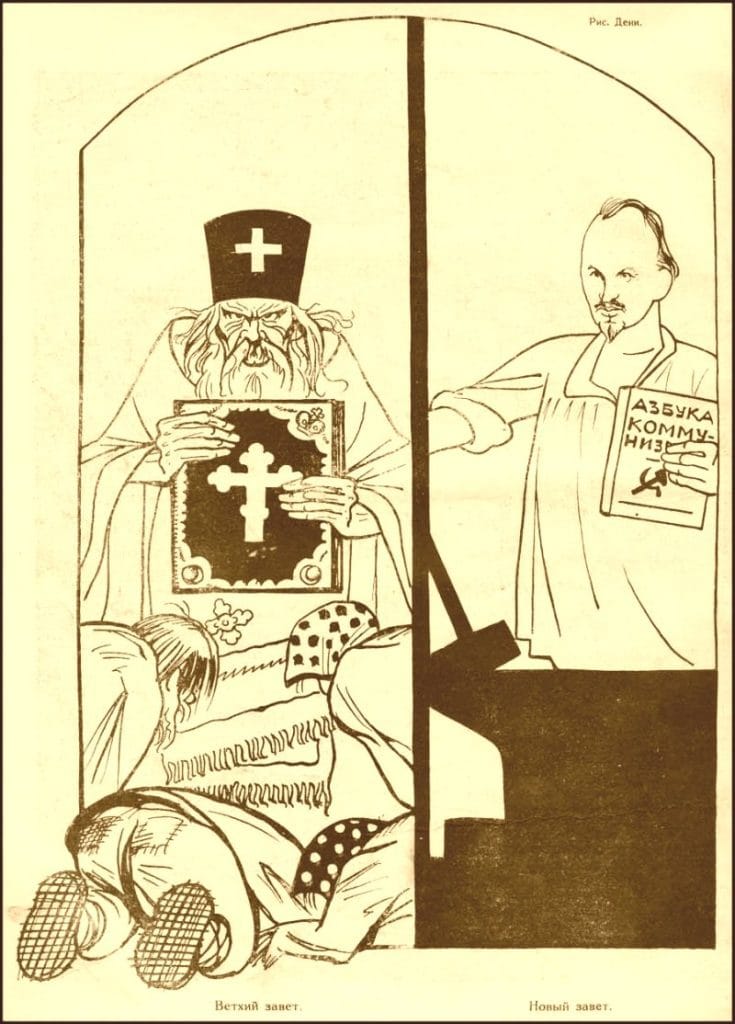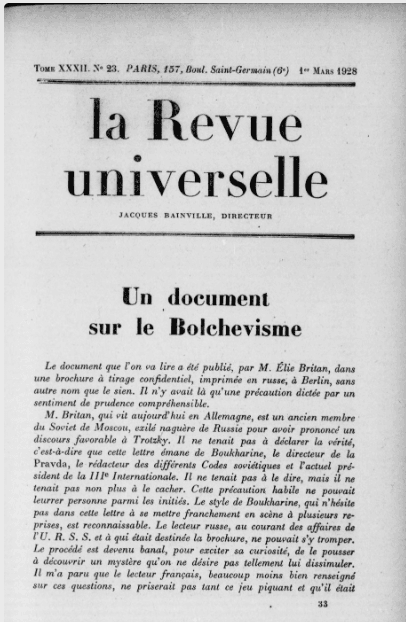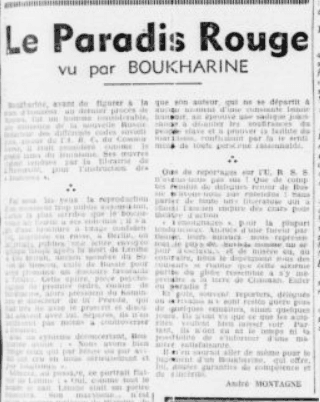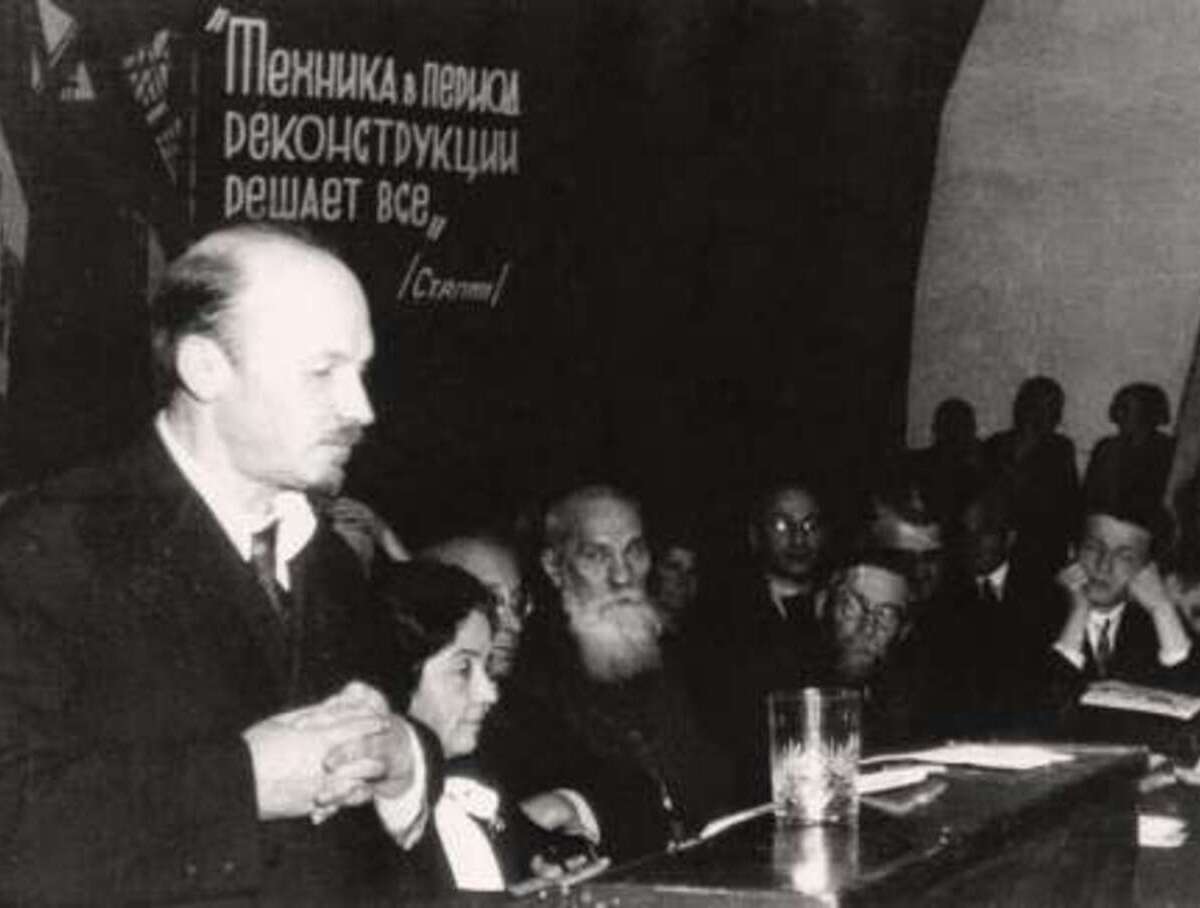spoke
One of the Bolshevik leaders, Nikolai Bukharin, is often credited with the quote “We are conducting an experiment on our people, just as a medical student experiments on a corpse purchased from an anatomical theater.” We decided to check whether this quote is accurate and whether it really belongs to Bukharin.
A quote from Bukharin was given by Alexander Yakovlev, one of the “architects” of perestroika, head of the propaganda department of the CPSU Central Committee, and in the 1990s the head of the Democracy Foundation, which published archival documents about repressions. In an interview with Nikolai Svanidze, Yakovlev, proving the cynicism of communist leaders, remembered this quote. The phrase attributed to Bukharin later became one of the epigraphs of Yakovlev’s collection of articles “Twilight"(2005). From time to time this quote pops up in a variety of media and blogs: in the newspaper “Baikal news", on the website Kasparov.ru, in the Facebook community "Immortal barracks"
Nikolai Ivanovich Bukharin (1888–1938) was one of the key figures of the Bolshevik Party. He was considered the main theorist and economist of the CPSU(b). Bukharin became one of the authors of the famous “catechism” of the Bolsheviks - “The ABC of a Revolutionary”. For many years he served as editor-in-chief of the newspaper Pravda, and later headed Izvestia. After Lenin's death in 1924, he became Stalin's closest ally in the fight against the opposition - Leon Trotsky, and then Grigory Zinoviev and Lev Kamenev. Later, Bukharin himself was accused of “right deviation”, and in 1937 he became involved in the case of the right-wing Trotskyist bloc, convicted in 1938 and executed.

According to the version outlined by Alexander Yakovlev, Bukharin said the phrase about an experiment on his people in an interview with a French newspaper in 1928. The text under Bukharin's name actually appeared on the pages La Revue Universelle for March 1, 1928. But this is the only thing that is true in the mentioned version. Nikolai Bukharin did not give any interviews.
In fact, the phrase about an experiment on the people first appeared in 1924. The Berlin publishing house Logos published a brochure entitled “For I am a Bolshevik!” by Ilya Britan. The poet Ilya Britan was expelled from Soviet Russia in 1922, like many other members of the intelligentsia. Before his expulsion, he also managed to be involved in politics - for some time Briton was a member of the Moscow Council of Workers' Deputies.
Brochure "Because I am a Bolshevik!"compiled in the form of a letter to the author from an unknown leader of the CPSU (b). Modern historians determine This essay is an anti-Bolshevik pamphlet. An unknown Bolshevik, who allegedly sent a letter to the author, talks with all possible frankness about his party’s plans to destroy and rob Russia, and after it the rest of the world. Here are a few quotes from the letter: “In order to get money, we have not only robbed twice (and will rob twenty-two more times!) of ninety percent of Russia, but we will also sell it wholesale and retail”; “A country exhausted by wars, pestilence and famine (a dangerous remedy, of course, but a magnificent one!), and does not dare to make a word under the threat of the checks and the so-called army, which, believe me, are happy with us, because it is our revolutionary duty to caress the praetorians and hounds, to satiate them to the gills with all sorts of things”; “We have left no stone unturned from the centuries-old construction of the “Russian state”; we are experimenting on a living, still, damn it, living folk organism, just as a first-year medical student “works” on the corpse of a tramp, which he got in the anatomical theater”; “Now is it clear to you what I want to blurt out? Not yet? Ugh, what a fool you really are! Not clear? Well, in that case, get it... I don’t give a damn about Russia, you hear this - I don’t care, FOR I AM A BOLSHEVIK!!”
The letter contains a hint that it could have been written by Bukharin. All other leaders of the Soviet state: Stalin, Zinoviev, Kamenev, Trotsky, Lunacharsky are spoken of in the third person. But there is no direct indication, and in general the style of the letter, composed like “Protocols of the Elders of Zion", leaves no doubt that this is an anti-Bolshevik pamphlet. This did not stop the Parisian newspaper La Revue Universelle four years later, translate the pamphlet into French and call it “Bolshevik Document”. The preface indicated that Mr. Britt apparently did not indicate the name of the Bolshevik for reasons of his own safety. But Bukharin’s style, writes the newspaper’s editors, is quite recognizable, and “it is difficult to mislead a Russian reader familiar with the state of affairs in the USSR.” The phrase about the experiment on the people, as well as the text of the letter as a whole, was translated correctly, without changing the general meaning.

Thus, it was the French newspaper that first attributed the authorship of the letter to Bukharin. Therefore, it is worth separately noting the absurdity of the correspondence in 1924, after Lenin’s death, between one of the most influential Bolsheviks and the emigrant poet. In his letter, Bukharin addresses Britan quite familiarly (“my little bird”) and ironically, which suggests friendship between them at least in the past. Meanwhile, no correspondence between Britan and Bukharin could be found.
In 1938, excerpts from Bukharin’s letter appeared in the Parisian newspaper La Flèche, a left-wing but anti-Stalinist publication. The article was called "Red Paradise through the eyes of Bukharin” and came out after the execution of the Bolshevik theorist. Leon Trotsky, Bukharin's former main enemy, immediately responded to the publication. “For anyone who knows even a little about the circumstances and participants cannot imagine the slightest doubt that this is not a letter from Bukharin, but a crude, malicious and ignorant forgery,” Trotsky wrote to the newspaper. “It would take a complete lack of critical sense not to detect this at first glance.”

Thus, the style of the letter, the difference in position between Bukharin and Britain, and Trotsky’s testimony allow us to say with a high degree of confidence that Bukharin did not write this letter and did not say these words.
Most likely not true
If you find a spelling or grammatical error, please let us know by highlighting the error text and clicking Ctrl+Enter.






